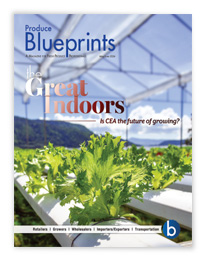Writing in The New York Times, Stacy Mitchell, an executive director for the Institute for Local Self-Reliance, explains why groceries are so expensive.
Mitchell argues that one of the most crucial causes has to do with antitrust policy. (I went into this issue myself in a recent column.) Amazon and the antitrust artillery – Produce Blue Book. She contends that it is the major reason that independent groceries are withering away.
Antitrust policy is meant to enhance economic fairness and competitiveness. The relevant law here is the Robinson-Patman Act of 1936, which, among other features, mandated that suppliers offer the same terms to all retailers. Price Discrimination: Robinson-Patman Violations | Federal Trade Commission (ftc.gov)
“The act allows large retailers to claim discounts based on actual volume efficiencies but blocks them from extracting deals that aren’t also made available to their competitors,” Mitchell writes.
This policy served its goal comparatively well until it was no longer thought to matter. That initially came with a ruling by a judge named Robert Bork in the 1970s saying that what was important in antitrust policy was not competitiveness per se—or fairness to smaller businesses—but lowering consumer prices. If larger purchasers could squeeze price concessions from their suppliers, that would lead to lower consumer prices. And that would be a good thing.
After that point, regulators—starting with those in the Reagan administration, which came to power in 1981—let antitrust policy slide. As an administration official explained that year, antitrust was no longer “concerned with fairness to smaller competitors.”
You can see where this is all headed.
Since that little-noticed watershed, large purchasers such as Walmart have been happy to strong-arm suppliers into providing them with favorable terms that are not available to smaller purchasers.
Now you know why the landscape in retail grocery has shifted so radically over the past 40 years toward megachains like Walmart. Independent grocers have been fading away, leaving many areas with no supermarkets whatsoever.
If this new policy enables big buyers to get their goods at cheaper prices, why should grocery prices go up? Shouldn’t they be going down?
That leads back to the very reason for antitrust policy. If you squeeze out enough of your competitors, you can charge whatever price you want.
Mitchell contends that this fact explains the rapid rise of grocery prices since the beginning of this decade, inflation only being a cover. (If it is that—after all, inflation just means that you have to pay more for the same goods).
It is also why, she continues, retailers have been able to squeeze their suppliers more brutally—currently a common complaint in the produce industry.
In a letter dated March 30, 2022, a bipartisan group of 43 members of Congress urged the Federal Trade Commission to resume the enforcement of Robinson-Patman, writing, “As a result of concentration throughout the supply chain, . . . small and medium-sized businesses are increasingly subject to discriminatory terms and conditions, including less favorable pricing and price terms, less favorable supply, less favorable retail packaging, and sometimes an inability to access products in short supply that are available to their competitors.
“Farmers and ranchers also suffer from high levels of concentration. Today, just a handful of firms compete to buy and sell agriculture products. This results in unreasonable producer demands and it drives down the prices paid to farmers and ranchers to anticompetitive lows. Because large suppliers capture those profits and price discrimination among retailers reduces price competition in the retail market, consumers do not always experience lower retail prices as a result of lower producer prices.”
Does this match your experience as a produce supplier?



